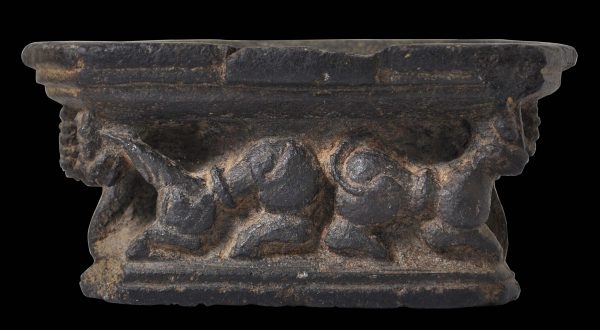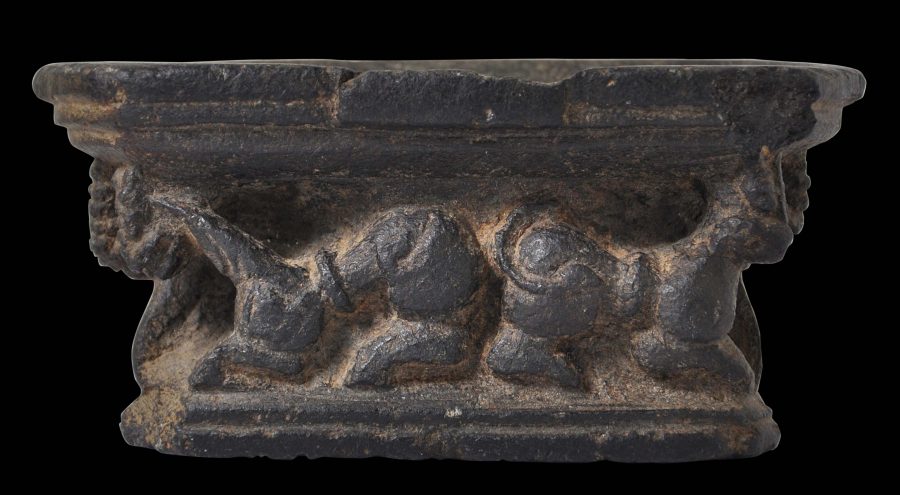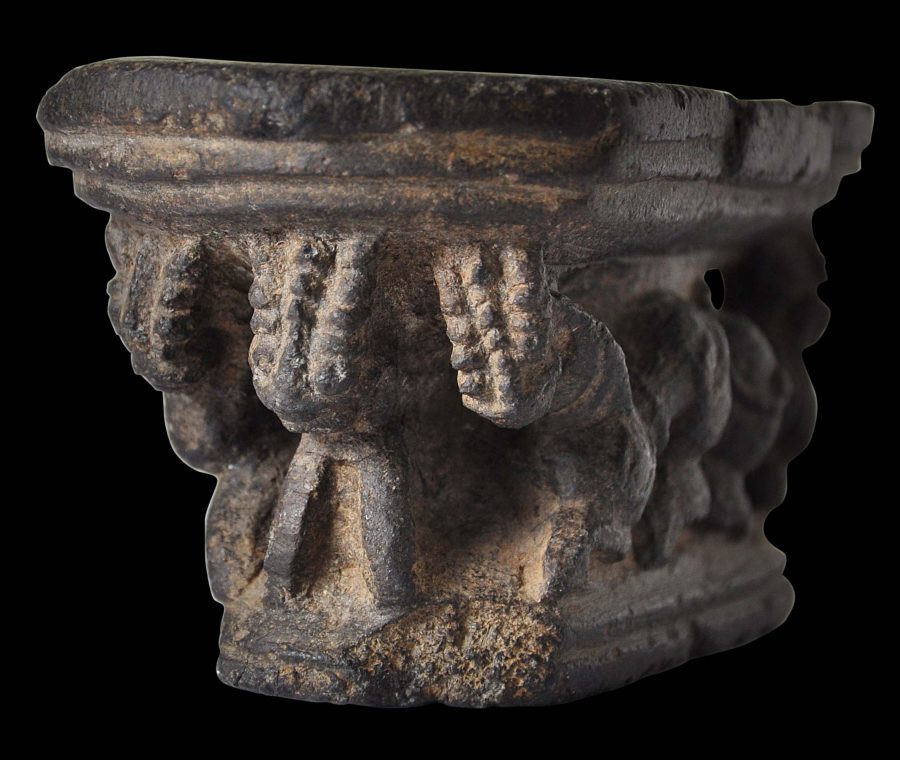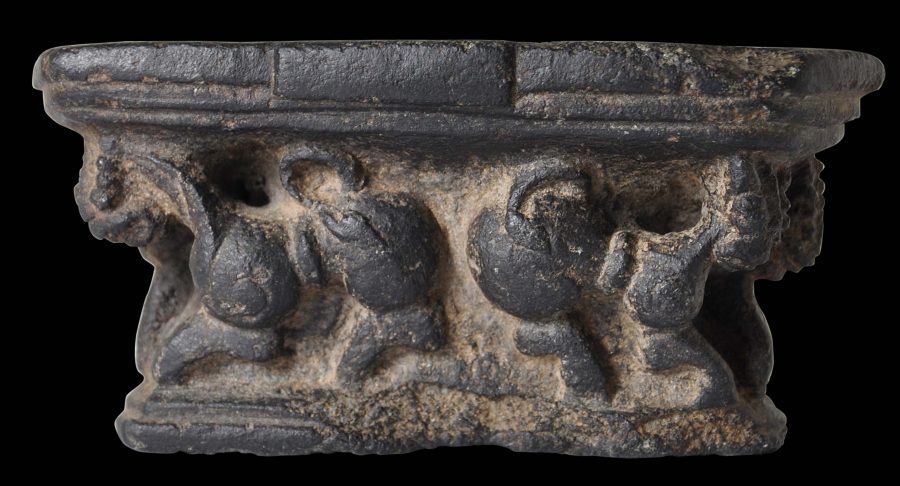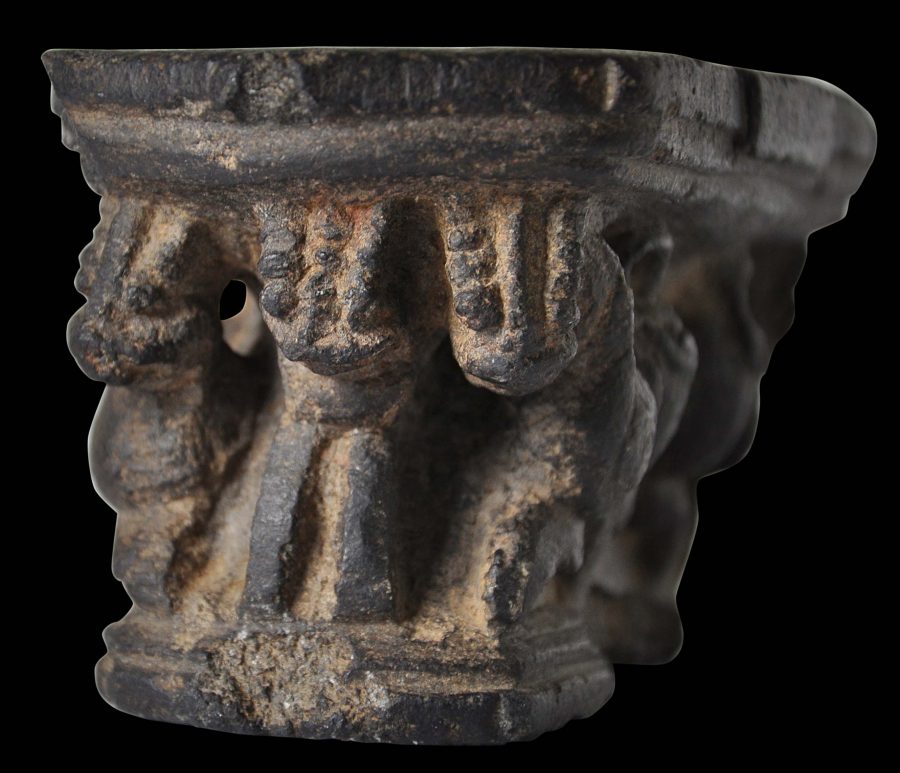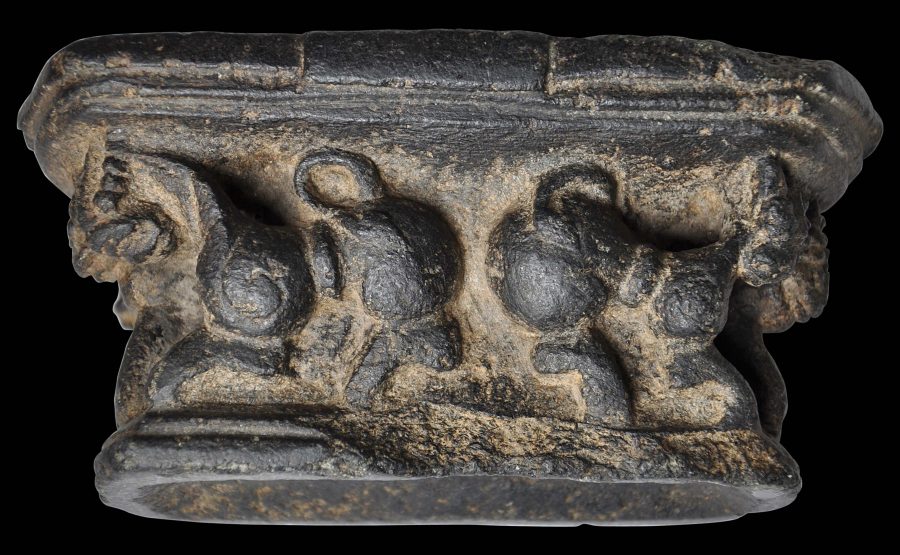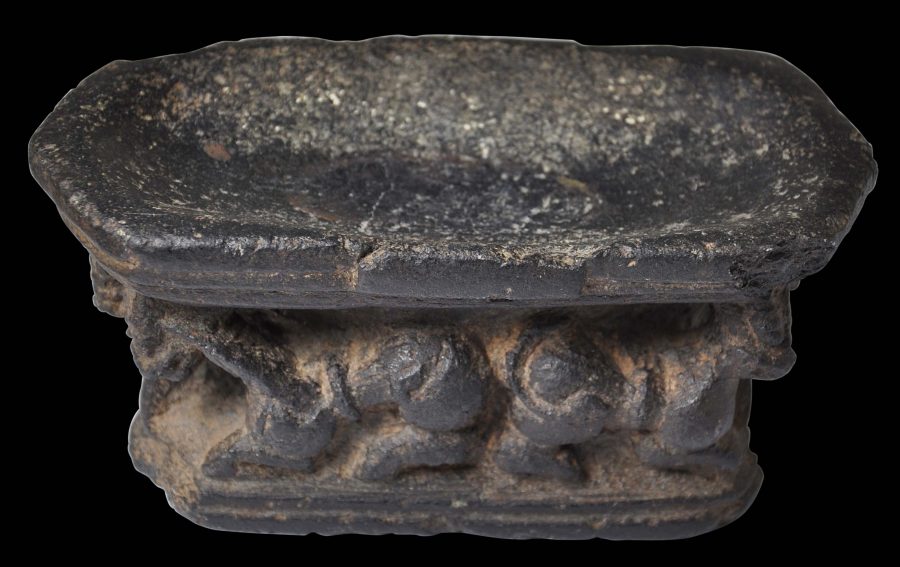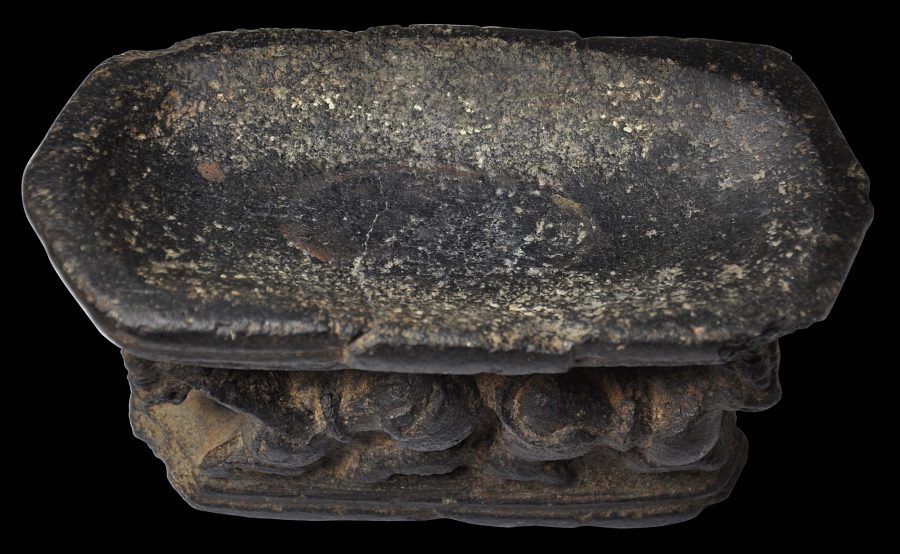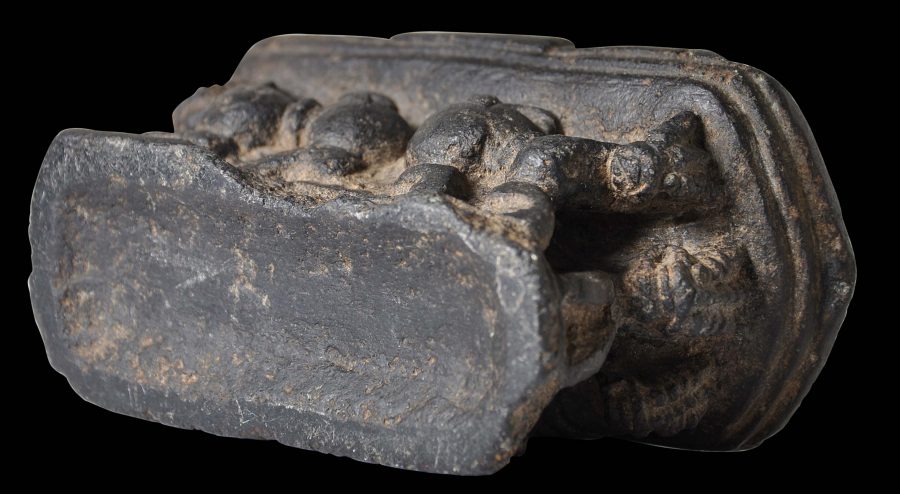This small, archaic stone platform is carved from a single piece of stone. It is of rectangular form and has a shallow well on its top. A pair of mythical feline yali creatures are carved into both of the long sides. Either end is carved with the multiple heads of each yali plus an additional multiple-headed yali in the middle.
It is likely that this item was kept on an altar and provided a vase on which a conch shell would have rest on its side. The top of the platform or stand is concave to match the natural curves of the conch.
Conch or trumpet shells are important ritual objects in Hinduism. They are used as ceremonial trumpets in puja (prayer) rituals.
Warriors in ancient India blew conch shells to announce the commencement of battle. This is described in the famous Indian epic, the Mahabharata.
The conch, as a motif, often is associated with Vishnu. Vishnu’s conch attribute, the Panchajanya, represents life. The god often is portrayed holding a conch, and temple images of Vishnu sometimes have an actual conch-trumpet placed at his feet.
The stone here is much darkened from age and use. The contours are similarly worn. The condition is stable and the item sits evenly without rocking.
References
Michell, G., et al, In the Image of Man: The Indian Perception of the Universe through 2000 Years of Painting and Sculpture, Arts Council of Great Britain, 1982.


